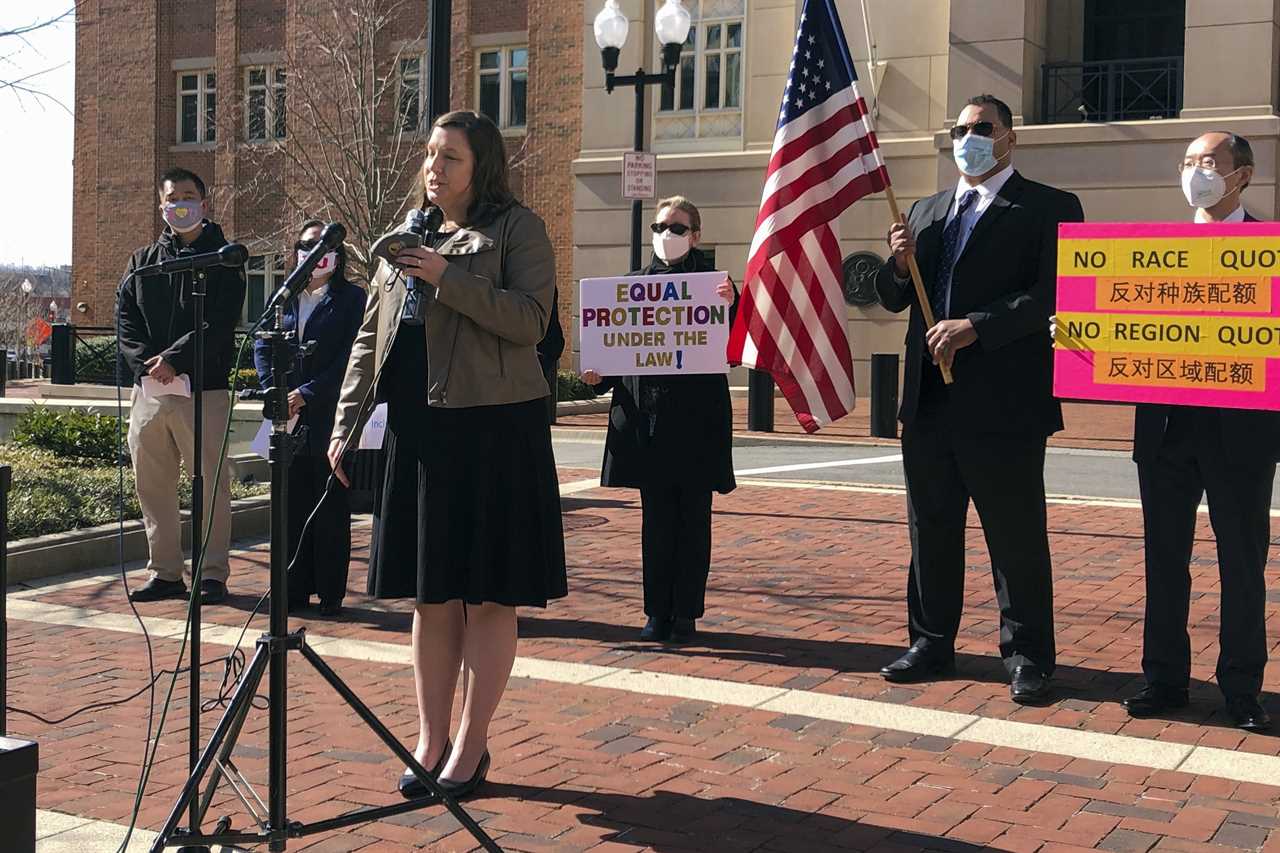
The Supreme Court on Tuesday decided to punt on a case about the admissions policy at a selective public high school in Northern Virginia that had the potential to further dismantle the reach of affirmative action in education.
The justices who declined to add the case to their docket did not provide a reason for their decision to deny review in the suit asserting that Thomas Jefferson High School for Science and Technology discriminates against Asian and Asian American applicants.
The Supreme Court’s action allows the school to maintain the new admissions policy. However, two members of the high court–Justices Samuel Alito and Clarence Thomas–expressed strong disagreement with their colleagues’ refusal to take up the case.
In a 10-page dissent, Alito railed against a federal appeals court ruling that he called “flagrantly wrong” for holding that some discrimination against Asian Americans was legally tolerable as long as they remained overrepresented in the school.
“The holding below effectively licenses official actors to discriminate against any racial group with impunity as long as that group continues to perform at a higher rate than other groups. That is indefensible,” Alito wrote, joined by Thomas.
Alito also denounced the ruling last June, which found the policies did not disparately impact Asian American students, as “a virus that may spread if not promptly eliminated.” He called the decision from the Richmond, Va.-based 4th Circuit Court of Appeals “aberrant” and described it as “hard to understand” his colleagues’ unwillingness to revisit it.
In February 2022, a federal district court judge sided with parents who argued that a series of school policy changes meant to increase the odds of admitting students from underrepresented backgrounds ultimately hurt Asian Americans. But the 4th Circuit Court of Appeals, in a 2-1 decision, reversed the lower court.
Key context: The Supreme Court's move to review the case comes less than a year after its ruling in Students for Fair Admissions v. Harvard, which gutted the use of race-conscious admissions policies across most of higher education. Buoyed by that ruling, anti-affirmative action groups are testing how many new restrictions the courts are willing to accept on the use of race in other settings and institutions. Some groups are challenging scholarship programs and fellowship opportunities designated for underrepresented students. Students for Fair Admissions is also challenging the use of race-conscious admissions at West Point and the Naval Academy.
Fairfax County Public Schools staff in 2020 proposed “admissions pathways” that provide “fair and equitable access to all students who have the potential to succeed at TJ,” according to the appeals court.
The school board stopped requiring a $100 application fee and standardized tests for admission. It also adopted a holistic review process that considers “experience factors” such as a student’s eligibility for free school lunch, their status as an English-language learner or attending a historically underrepresented public middle school. The school board also said the admissions process must be “race-neutral,” and admissions decision-makers will not be provided an applicant’s name, race, ethnicity or sex.
Legal back and forth: A group of Asian American parents formed the Coalition for TJ in response to the policy and sued the Fairfax County School Board saying it violated the 14th Amendment’s equal protection clause. The district court ruled the policy created a disparate impact on Asian American students and was adopted by the school board with discriminatory intent. But the appeals court overruled, finding that the parents group did not “establish that the Board adopted its race-neutral policy with any discriminatory intent.”
The race-neutral policy, the appeals court wrote, spurred an increase of nearly 1,000 more students applying to attend the high school and more than half of the admissions offers extended went to Asian American students. Black students received less than 8 percent, Hispanic students were given slightly more than 11 percent and white students received more than 22 percent of the offers.
“The policy visits no racially disparate impact on Asian American students,” the court wrote. “Indeed, those students have had greater success in securing admissions to TJ under the policy than students from any other racial or ethnic group.”
----------------------------------------
By: Josh Gerstein and Bianca Quilantan
Title: Supreme Court rejects Thomas Jefferson high school admissions case
Sourced From: www.politico.com/news/2024/02/20/supreme-court-thomas-jefferson-high-school-admissions-case-00142170
Published Date: Tue, 20 Feb 2024 11:06:30 EST
Did you miss our previous article...
https://consumernewsnetwork.com/politics-us/rfk-jrs-cash-crunch-independent-raised-more-money-than-he-spent-in-january






